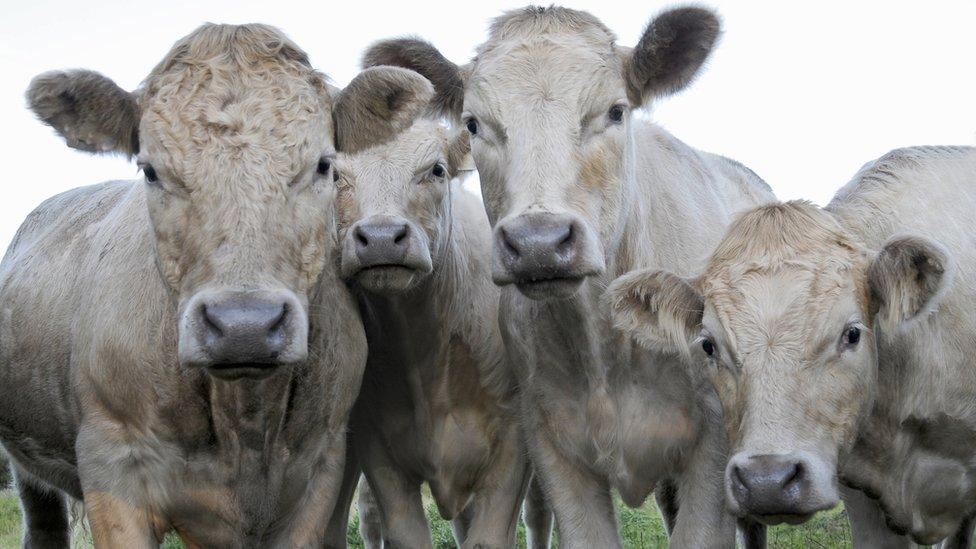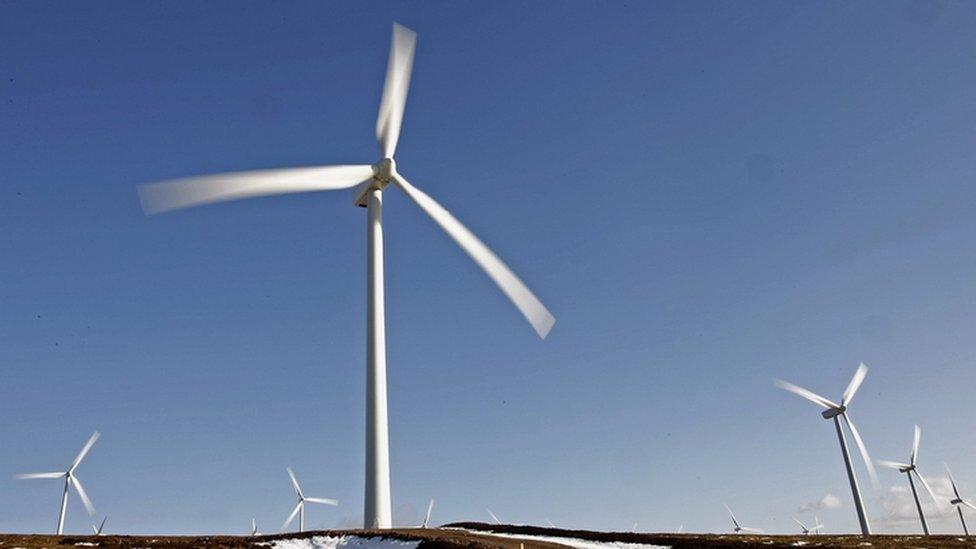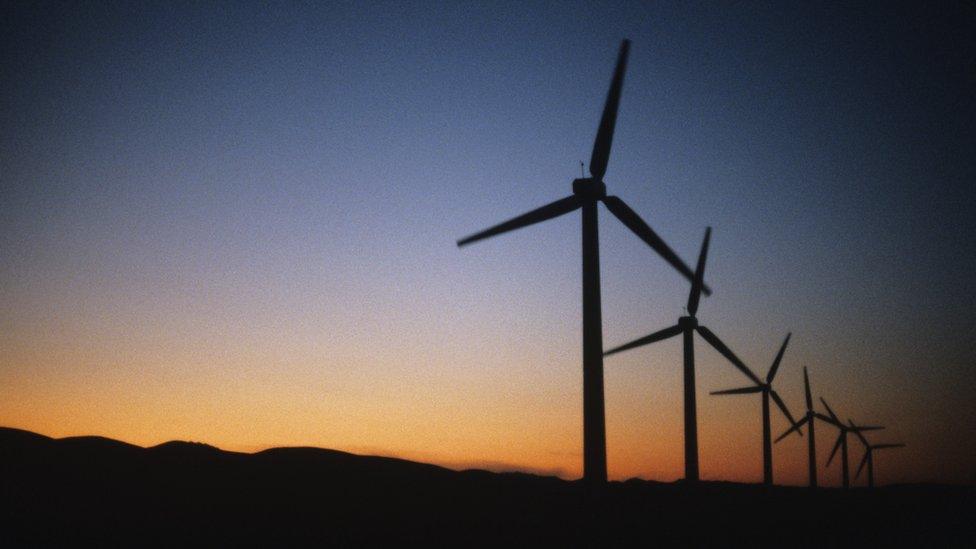Transport and agriculture sectors 'should cut emissions'
- Published

Some of the biggest emitters of greenhouse gases have the lowest climate change targets, according to a Holyrood report.
It said the transport and agriculture sectors needed to make a greater contribution than laid out in the Scottish government's climate plan.
Four Holyrood committees have been scrutinising the draft plan which will be debated by MSPs next week.
Ministers said they would consider all reports before finalising the plan.
Four Holyrood committees - led by Environment, Climate Change and Land Reform - have been scrutinising the Scottish government's draft Climate Change Plan.
In their joint report, the committees recognise that the ambitions are high but says some sectors need to do more to tackle the issue.
The Climate Change plan sets out targets for reducing greenhouse gas emissions for eight different sectors.
'Techno-fixes'
Transport and agriculture are two of the biggest contributors to climate change, but the report points out that both have weaker targets than other sectors.
It says the plan does not contain enough detail about how the targets will be met and it calls for more policies to bring about behavioural change rather than so called "techno-fixes".
Environment convener Graeme Dey said: "Scotland has ambitious climate change targets and the Scottish Parliament wants to make sure that plans to reduce emissions are as robust and achievable as possible.
"Our committee feels that it is crucial for all of Scotland's sectors to play their part in reducing emissions.
"Specifically transport and agriculture - which are the biggest contributors in terms of creating harmful carbon emissions - must, in the opinion of the committee, be required to make a greater contribution in tackling climate change.
"In order for Scotland to truly be a world leader, the Scottish government needs to ensure all sectors are equally challenged in creating a climate-friendly, low-carbon Scotland."

The committee believes the transport and agricultural sectors should have more ambitious targets
The Environment, Climate Change and Land Reform Committee highlighted a range of issues including:
The Scottish government should adopt equally challenging policies and proposals across all sectors, which reflect the wider benefits of climate change actions and should be supported by behavioural change research
More detail should be given on emissions reductions across all sectors and the necessary action should be specific, clear and transparent in the final plan
The final plan should have a "Plan B" option if the assumptions for carbon capture and storage are not realised
The monitoring and evaluation framework is crucial and the Scottish Parliament should be involved in the development and scrutiny of this
The draft Climate Change plan sets out Scotland's approach to cutting emissions over the next 15 years
Environmental groups have already criticised some aspects of the plan which they say relies too much on technical solutions like electric vehicles.
The committee said it believed the public's role in bringing about change has also been overlooked.
Hitting targets
Mr Dey added: "Not enough emphasis appears to have been placed upon improving everyday habits in order to combat climate change.
"We believe this is a missed opportunity. That's why we've recommended that the science of behaviour change should be included in the final plan, in order to empower the Scottish public to make lifestyle changes that can make a huge difference."
Climate Change Secretary Roseanna Cunningham said the draft plan set out a package of "transformational measures and interventions" across many sectors.
"We have already achieved our 2020 targets six years early, and this is something that we should be proud of," she said.
"This draft plan sets out the real on the ground changes that need to happen across our economy to achieve our ambitious future targets and has been developed to ensure it both meets the climate change targets and is realistic and workable.
"We welcome the publication of the four committee reports as parliamentary scrutiny is an important step in shaping the final plan. We will consider the reports along with submissions that have come directly to us, when finalising the Climate Change Plan and moving into the delivery phase."
- Published24 January 2017

- Published19 January 2017

- Published30 December 2016

- Published13 September 2016
